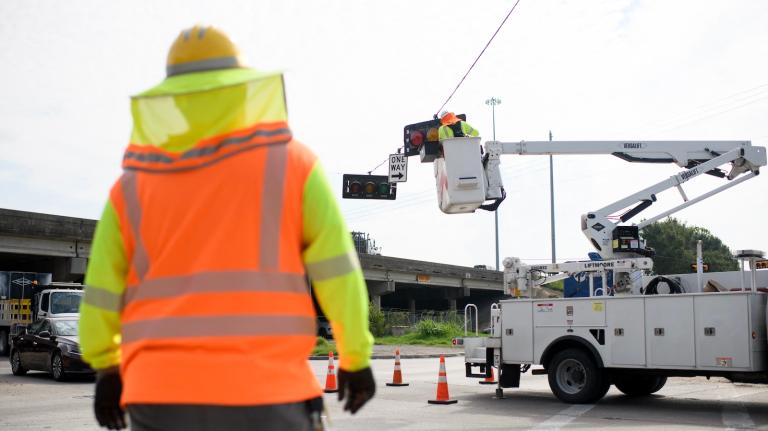I have written a great deal about the terrific work of McKinsey & Company (see “McKinsey 2008 Research in Review: Stabilizing at 450 ppm has a net cost near zero” and links below).
So I was excited and delighted to be invited by The German Marshall Fund to be the respondent for a roundtable discussion Monday in DC (details below) on their updated cost-curve, which I have an early glimpse of for Climate Progress readers [click to enlarge]:
Nobody has as detailed a set of “bottom up” numbers as McKinsey — though I certainly have some issues with their work. Too little concentrated solar thermal power — and it is not a little cheaper than PV, it’s a lot bigger.
Anyway here are details of the event, in case you are in DC and can make it. And again, I’d be interested in ideas for responses or questions to McKinsey.
The German Marshall Fund of the United States cordially invites you to a climate policy briefing to discuss “Pathways to a Low-Carbon Economy” featuring
Jon Wilkins, Partner
McKinsey & Company, Inc.Dr. Joseph Romm, Senior Fellow
Center for American ProgressMonday, May 11, 2009
12:00 pm to 1:30 pm
Charlie Palmer, 101 Constitution Avenue NWThe German Marshall Fund of the United States is pleased to host a roundtable discussion on the costs of reducing greenhouse gas (GHG) emissions in different sectors around the globe. Leaders in many nations are discussing ambitious targets to reduce GHG emissions. The EU is planning to cut its emissions by 20% below 1990 levels by 2020 and will aim for a 30% reduction if other countries with high emissions take on similar targets. At the same time, an intense debate is underway on the technical and economic feasibility of different target levels, which emission reduction opportunities should be pursued, and the costs of meeting the targets. This event will provide an opportunity for an open discussion on the latest global cost curve analysis by McKinsey & Company, Inc., including the modeling assumptions and policy implications.
Please RSVP by e-mail or telephone to Guido Zucconi at 202-683-2670 or gzucconi@gmfus.org
Come if you can, comment if you can’t!




